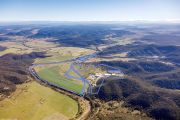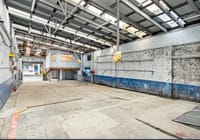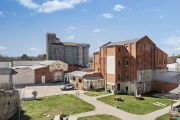
Newcastle lures office tenants from Sydney with value and lifestyle
It is not often you get an international company setting up an office in Newcastle but that is what one law firm has done.
DWF is spread across 17 countries but saw an opportunity to service the people of Newcastle and its region with its variety of legal services.
“Quite simply, the overheads here [Newcastle] are a lot of cheaper,” Mark Hickey, DWF (Australia) partner and chairman, says. “We believe we can build a base from here and it is great that people in the region can access professional legal services.
“We have 10 staff here and we are leasing on Honeysuckle Drive, which is a great location. The rents here are about half of what they are in Sydney and it is a fantastic place to live, which I have done all my life.”
The Newcastle and Charlestown markets have a total of 306,300 square metres of office space, a Colliers International report, Metro Office First Half of 2018, states. It had a combined vacancy rate of 9.2 per cent in early 2018.
The A-grade vacancy remains low in both markets – 6.4 per cent in Newcastle and 3.4 per cent in Charlestown – due to the lack of new supply.
One of the few major projects in the pipeline is stage two of the Gateway commercial project, which will add 10,100 square metres of A-grade stock to the market. That is expected to complete in January 2019.
Lee Follington, Ray White Commercial Newcastle’s commercial principal, says office vacancy rates are the lowest they have been in at least six years.
“I have seen it up above 15 per cent during my time here so to get down to 9 per cent and 6 per cent overall, it’s a stark contrast,” he says. “I believe that business confidence plays a large part in why we are seeing such high occupancies.
“With regards to office leasing, parking is at a premium and that is demand from most corporate companies wanting to either relocate here or start a new office.”
While DWF has offices in city locations around Australia, they represent a growing number of companies and individuals wishing to relocate out of Sydney and into Newcastle.
“There are only two A-grade office spaces available over 1100 square metres,” Adam Leacy, Colliers International national director, commercial sales and leasing, says. “We should fill up that space in the next two to three months.
“Rents are continuing to increase and they currently average around $400 per square metre for A-grade office space. There are several mooted projects expected to be completed by 2021, but other than that A-grade office space is at a premium.
“A lot of developments now are focused on residential apartments because of the influx of people moving here.”
The Colliers International report also reveals that manufacturing represents nearly 23 per cent of the Hunter Region’s gross regional product of more than $44 billion, with mining representing about 12 per cent.
Beaches bring in tenants
With a population approaching 600,000, magnificent beaches and a driving time of just over two hours from the Sydney CBD, plenty of Sydneysiders see Newcastle as an ideal place to either have a holiday house or even relocate too.
“On average we have between 3,500 and 4,000 square metres of net absorption a year, but for the next two years that won’t happen meaning there will be at least 7,000 square metres less of office space available,” Mr Leacy says.
“We are seeing this being taken up by residential development and my understanding is that at least 20 per cent of those sales are going to Sydneysiders.”
The demand is putting pressure on the availability of B and C-grade office stock.
“Naturally, with limited A-grade office stock available, the pressure and price moves onto B and C-grade offices,” Mr Leacy says. “What we are seeing is that their rents are also increasing and people are basically taking what they can get.
“I think more and more big and medium-sized businesses will move to Newcastle because of the lifestyle choices that it offers. We see Parramatta as our competitor and you are talking about two completely different areas.
“Once the light rail and airport upgrade have been completed, it will enable easier access around and to Newcastle. If you combine that with the university buying land in the city to expand its campus and range of teachings, Newcastle has a lot going for it.”












